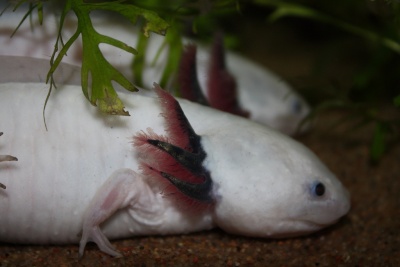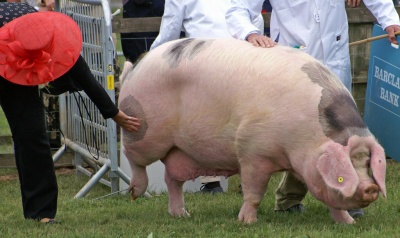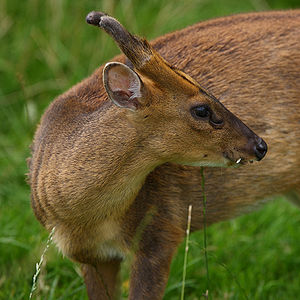
Coatimundi or Coati as they are called range over Southwest North America, Central America to Southern Brazil in South America. Their natural habitats are rainforests, woodlands and grasslands.
In the wild, males over 2 years old live solitary lives while females live in groups of about 4-20 members.
Coatis are close relatives of raccoons and kinkajous. They are about 2 feet long and weigh between about 8-12 lbs. They have black face masks with brown markings and white chins, throats and muzzles. Their bellies are tan or light brown. The tail is about 2 feet long with black rings and is used for balance. Snouts are long. Feet have large claws which they use for climbing, jumping and digging. Males should be neutered before 6 months old to prevent aggressiveness. It may be wise to spay females as well as they can become aggressive when going into heat. Coatis enjoy temperatures over 40 degrees, not too hot or too cold. Life span is about 15 years.
Coatis have tons of energy and are very curious and playful. They are often destructive so the house needs to be made coati-friendly although this may not help much. Provide your coati with lots of toys as this will help keep him/her occupied. Coatis require lots of attention and can be affectionate. They can be litter box trained and have little body odor. They can also be trained to walk with harness and leash.
Coatis are omnivorous and do well on a diet of grain-free dog or cat food. Cooked chicken or beef and a small amount of fruits and veggies can be added to the menu. Absolutely NO avocados, chocolate or any foods containing caffeine. Hiding food in small boxes or other containers or on a climbing post gives your coati mental stimulation as well as exercise.
Your coati should have its own cage equipped with toys and fresh water for when you are away from home.
Choose a pet coati that has been hand-raised or it can become very aggressive. They are usually good with other animals but may consider small ones as food.
Coatis can and will bite and care should be taken when trying to take something away from them. Although not recommended for homes with young children, they should be closely supervised if playing with children.
Coatis are not a pet for everyone. Read as much as you can about them and talk to other coati owners before considering adding them to your home.



